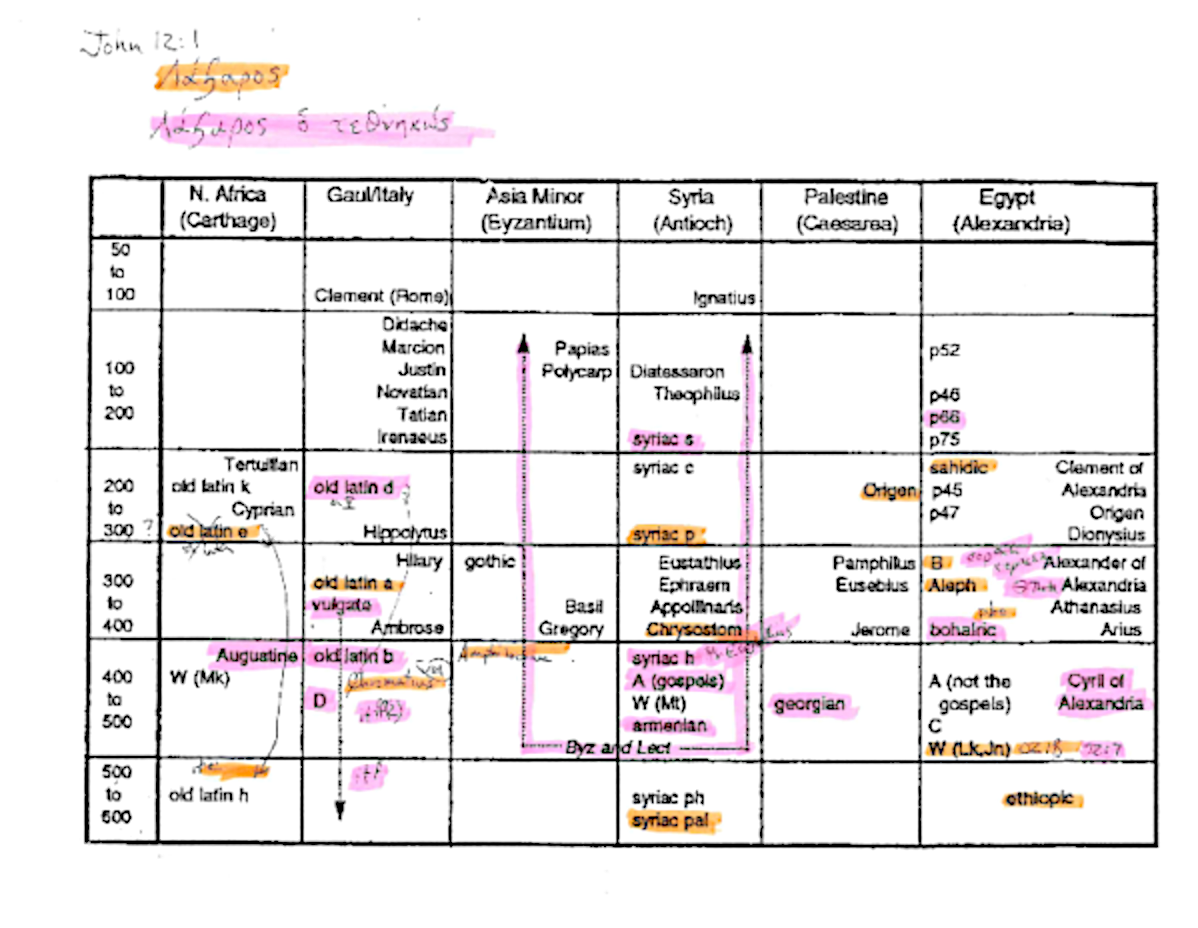February 26th, 2025
120. John 12:1 - The Phrase "Who Had Died"
I noticed that in John 12:1 the EHV includes the words “who had died,” but most translations omit those words. Why does the EHV include that phrase?
Here is the EHV text of John 12:1 with the phrase in question underlined: “Six days before the Passover, Jesus came to Bethany, the hometown of Lazarus, who had died, the one Jesus raised from the dead.”
The manuscript evidence for including that phrase is “early and widespread.” The phrase is omitted in some early manuscripts, but the evidence to include the phrase is actually stronger. We could have explained this in a footnote, but a Bible with too many notes can be troubling to some people. The appended chart of witnesses demonstrates that the reading used in EHV is slightly earlier and just as widespread, with more numerous later examples. The witnesses for including the phrase are highlighted in pink.
One witness that deserves more respect is Byzantine and Lectionaries (Byz and Lect). Manuscripts lasted longer in the desert climate of Egypt. Those early manuscripts are very valuable. But that does not necessarily mean the readings are actually "earlier text" in reality. The readings in Asia Minor and Syria are very early (see the arrows on the chart in pink color).
For more on that point and evaluating the textual witnesses of John, please see FAQ 101 here:
Later in FAQ 101, the point is made that the "original copy" of John might have been in Ephesus. (It also makes sense that it would be there until it was damaged/lost.) So, the readings from that area might well be “earlier” than those in the texts in Egypt, which were certainly copies.
Also see FAQ 101 for an argument in favor of Byzantine text and lectionaries. Most Bible scholars seem biased in favor of the Egyptian witnesses, while others seem biased in favor of the Byzantine readings. With the EHV, we looked at all of the witnesses and tried to judge them fairly without downgrading any of the witnesses.
There is a little scribbling on the chart with respect to old latin e. That is because there is some dispute about whether it belongs that early or later as indicated by a marking below. That is noted in the list of manuscripts available here:
